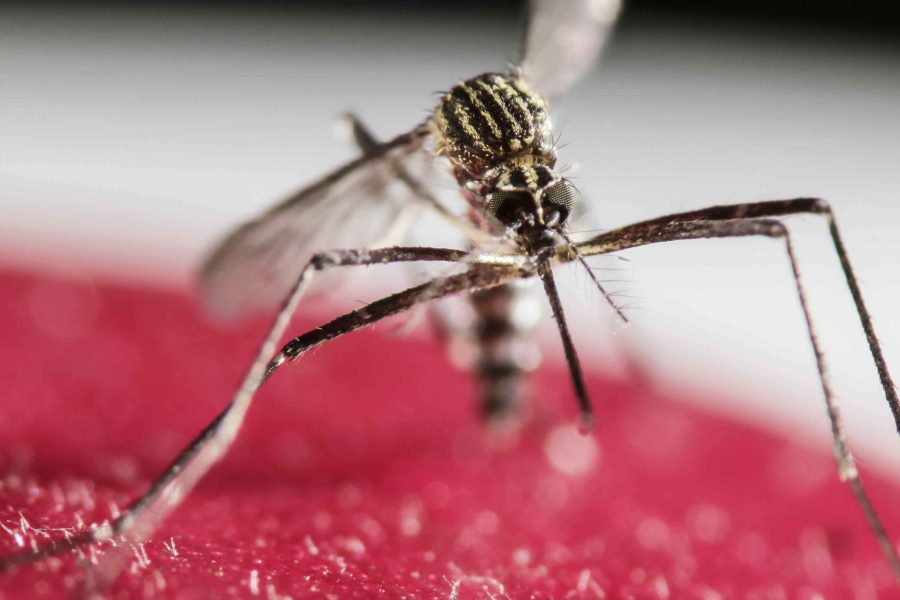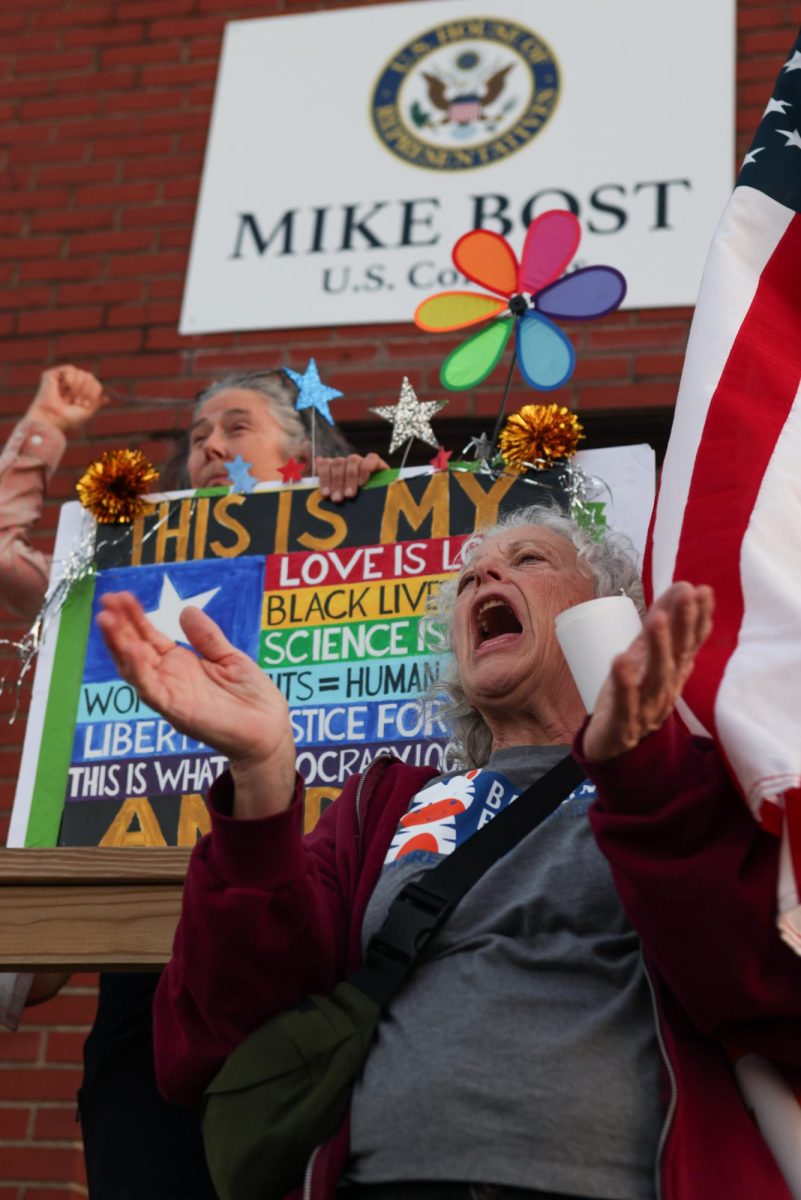How the 40-year battle over abortion blocked Zika funding
(Jeffrey Arguedas/EFE/Zuma Press/TNS)
September 20, 2016
WASHINGTON — Policy analysts with Planned Parenthood were perplexed in June when they first saw a provision excluding their partner clinics in Puerto Rico slipped into a draft bill providing $1.1 billion in emergency Zika prevention funds.
Puerto Rico is at the center of the Zika health crisis in the United States, with almost 20,000 cases of the mosquito-borne virus, which can also be transmitted via sexual intercourse with an infected partner.
More baffling still, at least 1,700 of the Puerto Rican cases involve pregnant women, the group most vulnerable to Zika everywhere because of the birth defects it can cause.
Advertisement
Oddest of all to the Planned Parenthood analysts, their clinics and other family-planning providers target the very low-income women who make up much of Puerto Rico’s population, and who top government health experts identified as most in need of protection from Zika.
Delaying pregnancy was one of the earliest warnings issued in nations with Zika outbreaks. El Salvador called for it in January, and Jamaica soon after. The World Health Organization advised women in Zika zones to discuss it with their doctors. The U.S. Centers for Disease Control and Prevention recently listed family-planning services — the services in which Planned Parenthood specializes — as part of “the first line of defense” against Zika.
Yet two short phrases buried deep in a long House conference report on the proposed legislation — essentially the House’s revised version of the bill — would prevent any family-planning funds in the Zika appropriation from going to Planned Parenthood affiliates in Puerto Rico.
The battle over those phrases has proved a so-far insurmountable stumbling block to passage of federal legislation Florida officials, both Democrats and Republicans, say is desperately needed to battle the Zika contagion.
One of the phrases would restrict the use of $95 million in grants to “health services provided by public health departments, hospitals, or reimbursed through public health plans.” The other would require that $80 million of the $95 million go to “territories with the highest rates of Zika transmission.”
That description applies only to Puerto Rico. As a private entity, Planned Parenthood’s Puerto Rico partner, Profamilia, with two clinics in San Juan and six in other parts of the island, doesn’t qualify under the first restriction.
Planned Parenthood, and its backers in Congress, saw the provisions as another salvo in a decades-long political war between anti-abortion and abortion rights forces, with Zika prevention and research the latest casualty.
Advertisement*
“Zika is a sexually transmitted disease,” said Dr. Raegan McDonald-Moseley, Planned Parenthood’s chief medical officer. “Birth control and condoms are an important defense. This is beyond just a political fight for us. The Zika crisis is very much an issue we care about and is related to the work we do across the country related to sexual and reproductive health.”
Until 1970, when Richard Nixon signed into law the Public Health Service Act, a law whose Title X sets up the only domestic federal program devoted to family planning and related preventive health services, Planned Parenthood, founded in 1916, largely had steered clear of politics.
But then the Supreme Court, in its 1973 Roe v. Wade decision, affirmed the right of women to have abortions in 1973. The anti-abortion movement took off, targeting public funding of abortions and the groups, like Planned Parenthood, whose clinics provided them.
That movement scored its first major victory in 1976 when Rep. Henry Hyde, an Illinois Republican, pushed through Congress a ban on Planned Parenthood and other providers using Medicaid funds to pay for abortions. The prohibition, still in force today, would put financial pressure on Planned Parenthood to find private money for poor women seeking to end pregnancies.
At least 16 states, some using language similar to the clauses in the House’s Zika conference report, have tried to divert federal funds earmarked under Title X for family-planning services for low-income and uninsured people or to block Medicaid money from going to Planned Parenthood. The organization is suing those states.
Defenders of the restrictions argue that putting limits on the funding simply seeks to more efficiently allocate the money.
“Some [states] have wisely chosen to prioritize the funds to more comprehensive health-care providers than Planned Parenthood, thereby avoiding state entanglement with abortion,” Casey Mattox, a lawyer with Alliance Defending Freedom, an Arizona-based anti-abortion group, wrote last week on the Daily Signal website, a self-described “news outlet” of the conservative Heritage Foundation policy center based in Washington.
Mattox said it makes “little sense to have women go to one location for birth-control pills and another for other health needs.”
But the bid to tie the hands of Planned Parenthood in Puerto Rico reminded the organization and its supporters in Congress that the Zika fight was not occurring in a political vacuum.
Just as the Zika measure was getting bogged down in Congress this summer, the House Appropriations Committee approved a separate measure to fund the Labor Department, the Health and Human Services Department and other federal agencies that removed all federal funding for Planned Parenthood, about $500 million.
The measure also would have ended the Teen Pregnancy Prevention Program, which Republicans first advocated in the 1990s and which largely has been credited with a dramatic and continuous decline in the rate of births to teenage girls since 1991.
The House appropriations bill had another provision aimed at women’s health providers: It allowed employers and health insurance companies to refuse to provide coverage of abortions or other medical services based on individuals’ religious or moral convictions, even in cases where an abortion was medically necessary to save a woman’s life.
With the help of Reps. Debbie Wasserman Schultz of Florida, Barbara Lee of California and other female Democratic lawmakers, the Planned Parenthood funding was restored and those riders were removed.
But the Zika bill threatened to impose another limitation on the group. Presented with the House revisions to a bill that the Senate had overwhelmingly approved in May, before the House Puerto Rico provisions appeared, Democratic senators voted “no,” repeatedly.
“There are clearly some Republicans in the House of Representatives who want to defund Planned Parenthood, but what does that have to do with Zika?” said Sen. Bill Nelson, D-Fla. “A group of House Republicans tried to attach a number of highly partisan provisions to a must-pass emergency spending bill to curb the spread of Zika.”
Now even Florida Republican critics of Planned Parenthood are urging that the provisions be dropped.
“I, who does not like Planned Parenthood, think that we should not be using Zika in that battle,” said Rep. Mario Diaz-Balart, a Miami Republican who sits on the House Appropriations Committee.
Sen. Marco Rubio, a Florida Republican and longtime Planned Parenthood critic, said he asked House leaders to drop the clauses about Planned Parenthood and other unrelated policy riders from the Zika funding legislation.
“As I’ve told members in both the House and the Senate, Zika is not a game,” Rubio said on the Senate floor. “We need to pass this funding as soon as possible so our health officials and experts have the resources they need to conduct vital medical research and eradicate Zika in Florida.”
___
(c)2016 McClatchy Washington Bureau
Visit the McClatchy Washington Bureau at www.mcclatchydc.com
Distributed by Tribune Content Agency, LLC.
Advertisement










